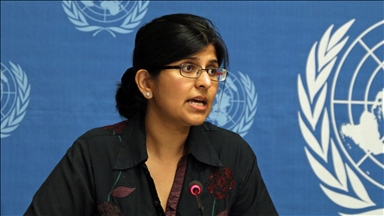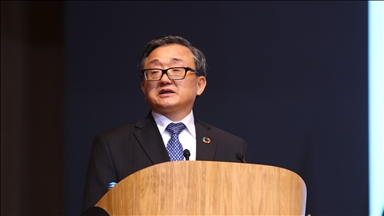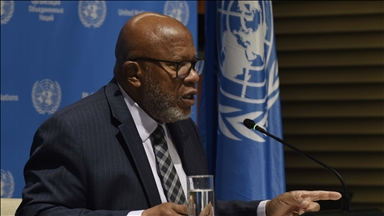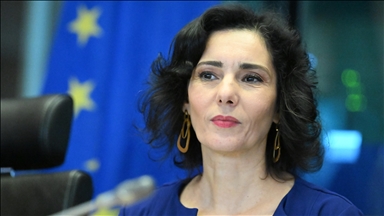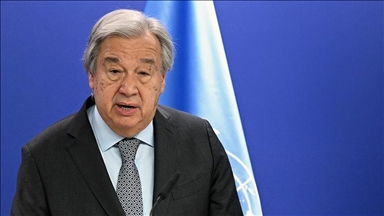World leaders head to New York to tackle climate change
The UN summit will set the tone for next year's meeting in Paris to establish greenhouse gas limits
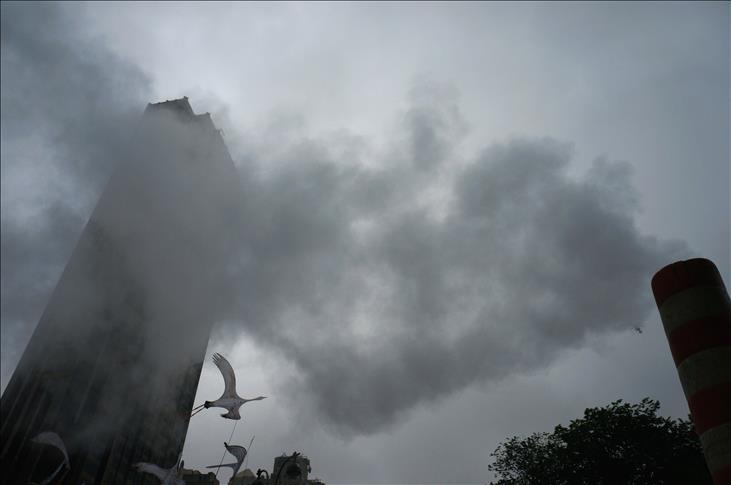
By Hatice Kesgin
ANKARA
World leaders descend on New York on Tuesday for a United Nations climate summit that will shape next year’s Paris conference, billed by some as the most important climate change meeting since Kyoto in 1997.
The meeting at the UN’s headquarters on the East River will see 125 heads of state and government discuss plans to combat global climate change, which will in turn form a treaty to limit the rise in global warming when they meet again in the French capital in December next year.
Speaking in the run up to the summit, UN Secretary General Ban Ki-moon described climate change as one of the greatest threats facing the world.
"Climate change is affecting the weather everywhere,” he said. “It makes it more extreme and disturbs established patterns. That means more disasters, more uncertainty."
“We can reduce the risks by cutting global greenhouse gas emissions and building low-carbon economies."
On Tuesday, presidents and premiers are expected to announce their proposals for reaching a meaningful agreement in Paris on reducing carbon emissions and funding action on climate change.
The plans will be implemented from 2020 and will, in theory, be legally enforceable.
However, climate change expert Professor Levent Kurnaz, of Bogazici University, Istanbul, said he had “lost hope” in world leaders agreeing a legally enforceable agreement that goes beyond Kyoto.
“Even next year’s agreement could not reach Kyoto’s level,” he told the Anadolu Agency.
The Kyoto protocol set obligations on industrialized countries to reduce greenhouse gas emissions that some environmentalists criticized for being too weak.
International law research fellow Ali Kerem Kayhan, of Yalova University, said: "Since the 2009 Copenhagen summit, the international community has been displaying pessimism [on climate change]. It is obvious that there is a need for a new agreement to combat climate change issues."
“At last year’s climate change summit in Warsaw, the participants agreed to build a new binding agreement for 2015. This year’s conference will take place with these negotiations in mind.”
The Turkish delegation to New York, headed by President Recep Tayyip Erdogan, includes Foreign Minister Mevlut Cavusoglu, Environment and Urbanization Minister Idris Gulluce and Forestry and Water Affairs Minister Veysel Eroglu.
Greenhouse gases that heat up the earth’s atmosphere, leading to climate change, reached a record high last year, according to the World Meteorological Organization.
Its annual report, the Greenhouse Gas Bulletin, said international action is needed to fight "accelerating and potentially devastating climate change."
The report noted that ‘radiative forcing’ – the difference between the amount of sunlight absorbed by Earth and the energy radiated back into space, which is affected by greenhouse gases – increased by 34 percent between 1990 and 2013 while carbon dioxide levels rose by 2.3 percent between 2012 and 2013, the greatest annual rise since 1984.
Qamar-uz-Zaman Chaudhry, a vice-president of the World Meteorological Organization and former director of Pakistan's Met Office, last year told The Guardian newspaper that extreme summer temperatures followed by floods could largely be attributed to climate warming.
This month, 346 have been killed in floods in Pakistan and four years ago heavy flooding killed nearly 2,000 people and swamped one-fifth of the country.
Erdogan will announce Turkey’s actions and targets as outlined in the country’s development plan, which pledges to set out greenhouse gas reduction measures.
Under these plans, the government is to establish a climate change research center to monitor emissions.
The Ministry of Environment and Urbanization has already set up a Climate Change and Air Management Cooperation Committee to record carbon trading and work with the UN to adapt Turkey to combatting climate change.
Under its capacity development program, $1.9 million was distributed among 18 projects.
Furthermore, a project to report on Turkey’s compliance with the UN framework convention on climate change has been funded by a 2.3 million Turkish liras ($1 million) budget.
But Kurnaz criticized the Turkish government for “preparing only data and reports.”
“We need to go beyond that,” he said. “The budget is just for research and we need to take more concrete steps.”
Environmental group Greenpeace has warned Turkey’s limited efforts to tackle climate change were being undermined by plans to build 80 mostly coal-fired power stations.
“Turkey now has 20 fossil fuel plants but the government is planning to establish 80 more that mainly use coal,” spokeswoman Gulcin Sahin said. “If Turkey establishes 80 more coal plants, the country will be the world's fourth largest coal threat after China, India and Russia.”
Anadolu Agency website contains only a portion of the news stories offered to subscribers in the AA News Broadcasting System (HAS), and in summarized form. Please contact us for subscription options.


